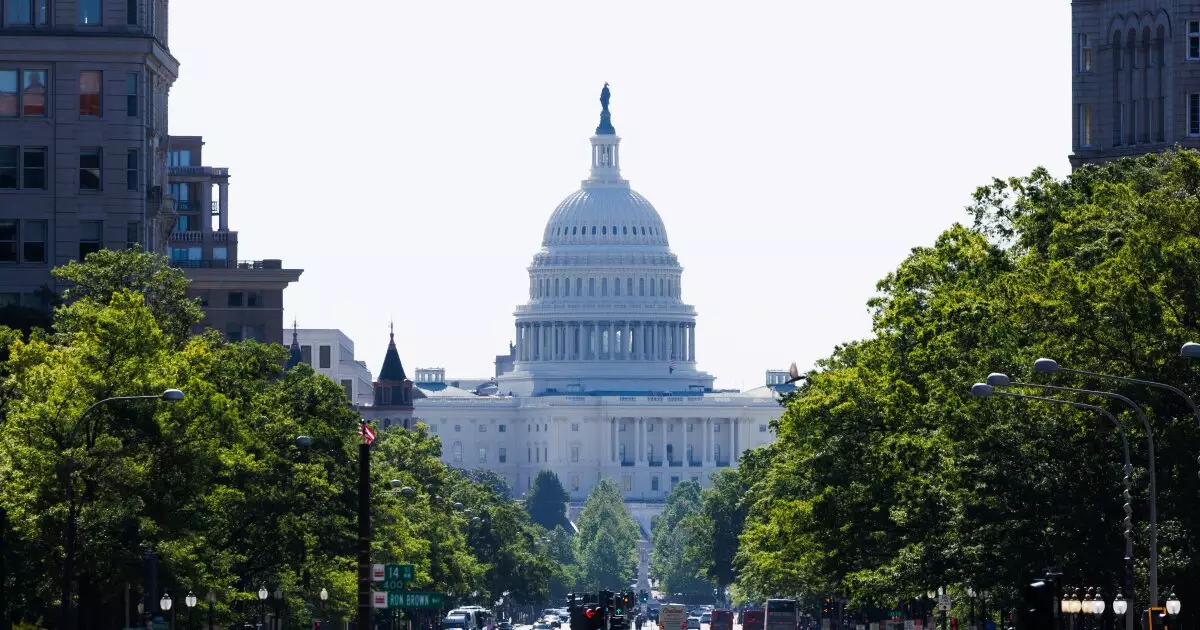Late Friday, the House Ways and Means Committee shocked many by releasing a preliminary draft of the tax legislation, affectionately referred to by its proponents as the “big beautiful bill.” The anticipation surrounding it culminated in this 28-page document, which is expected to pave the way for significant financial ramifications. The bill aims to solidify provisions of the 2017 Tax Cuts and Jobs Act that are on the cusp of expiration, including the increased alternative minimum tax and an ascent of the child tax credit.
However, a deeper examination reveals underlying risks — the absence of revenue offsets has raised eyebrows, particularly in the municipal bond market. These lawmakers seem poised to lean on tax exemptions to alleviate the financial burden of the extensive package. Without any discussion of the state and local tax (SALT) deduction cap, a notable source of tension among lawmakers from high-tax states, it’s evident that this proposal may ignite fierce debates in Congress, particularly among the SALT Caucus.
Holding the Financial Future Hostage
One cannot help but feel uneasy about the financial implications of this draft. The proposed tax bill introduces an alarming price tag estimated at around $5 trillion, a figure denounced by the Committee For a Responsible Federal Budget, which suggests this will soar our primary deficits to uncomfortable heights through 2034. The numbers don’t lie; the draft exceeds the allowable increase set forth in April’s budget resolution, positioning lawmakers in a bind.
As a result, we are left pondering — what sacrifices will the government propose to balance the soaring costs of this ambitious tax bill? Will we see cuts to essential services, or perhaps a stricter approach to tax collection? The financial future seems to be held hostage in a dangerous game of political poker, and the stakes are higher than ever.
The Political Tug-of-War
Enter the House Republican leaders, who have subtly ushered in their own brand of chaos. This draft is poised to ignite endless debates as Democrats flood the committee with amendments, aiming to amend every line. Chair Jason Smith, R-Mo., proclaimed that they’ve spent two years readying for this moment, but one has to question whether this preparedness will be enough to avoid the fallout of such risky fiscal policy.
Furthermore, the looming discussions about the SALT deduction cap will reveal the fractures in party unity. High-tax state representatives are adamant about enhancing the cap before they can offer their support. Without a compromise in place, this bill risks resembling the infighting we’ve seen unfold in the past among different factions of the Republican Party.
The Economic Agenda at Stake
Smith’s statement that pro-family and pro-worker tax provisions are the heart of President Trump’s economic agenda sends mixed signals. While it is commendable to advocate for families and working individuals, one must also contend with the financial realities of such tax cuts. Providing relief through generous child tax credits and lowering taxes on the working class can set off a budgetary chain reaction, further exacerbating the deficit.
Moreover, the juxtaposition of fiscal responsibility against populist measures is a perilous tightrope to walk. What good are tax breaks if they threaten the stability of our public finances? The common taxpayer might enjoy immediate relief, but in the long term, unsustainable fiscal policies will create a cycle of debt that ultimately weighs heavy on the very demographic it aims to assist.
Time to Address the Alarm Bells
As if this could not get any more gripping, Treasury Secretary Scott Bessent sent a warning that the nation would run out of money to pay its bills — we’re staring down the barrel of a critical financial juncture. With a looming deadline to raise the debt ceiling by mid-July, the stark reality that Congress must navigate a convoluted mix of new tax proposals and fiscal responsibility leaves us teetering on a precipice.
While it is crucial to support families and empower workers through tax legislation, the enormity of what is being proposed — a possible $5 trillion expense without clear offsets — poses questions about whether we can afford such ambitions. In this political maze of high stakes, the need for clear, cogent, and responsible policymaking has never been more apparent.

